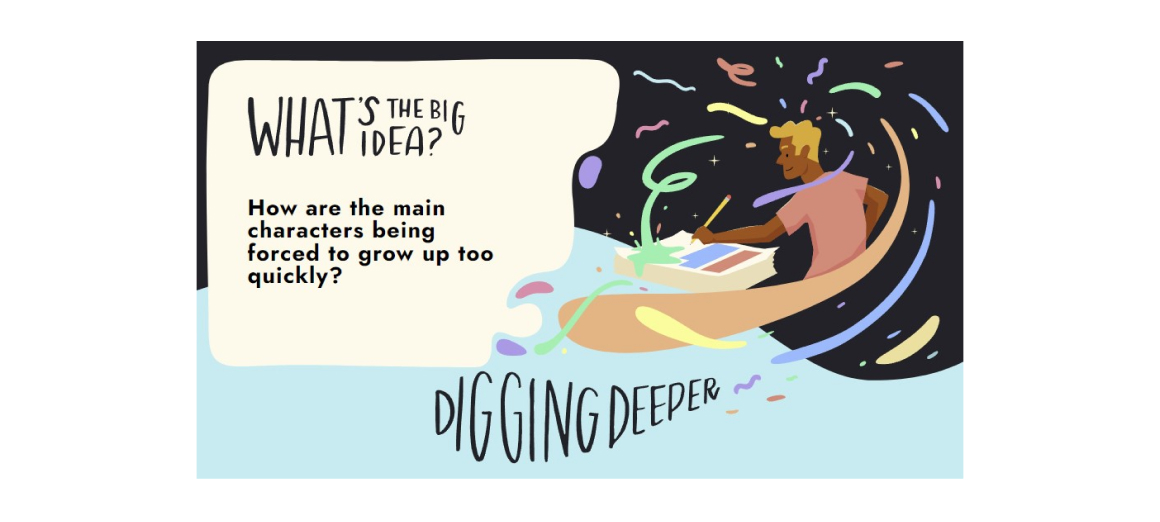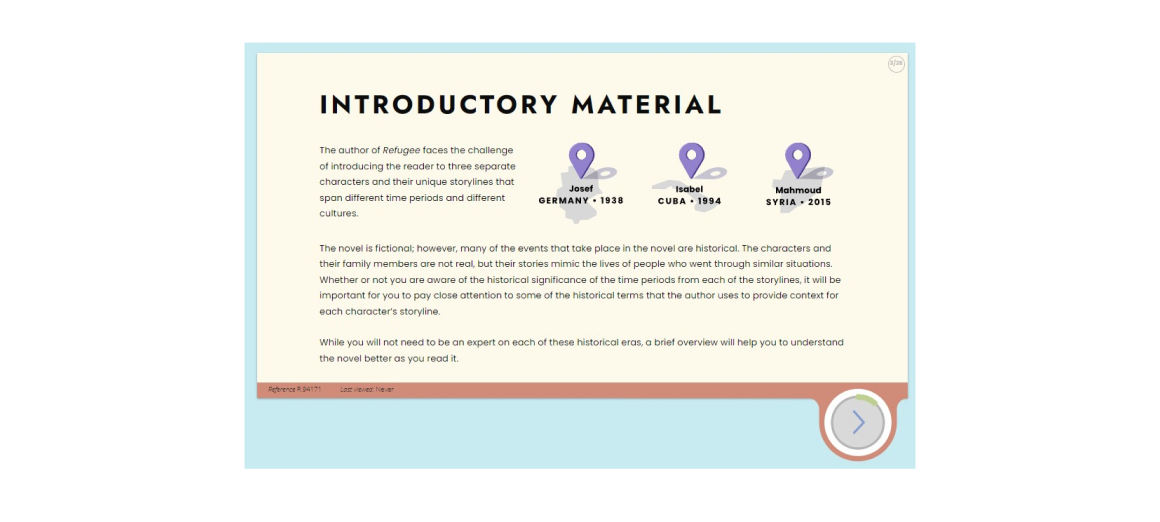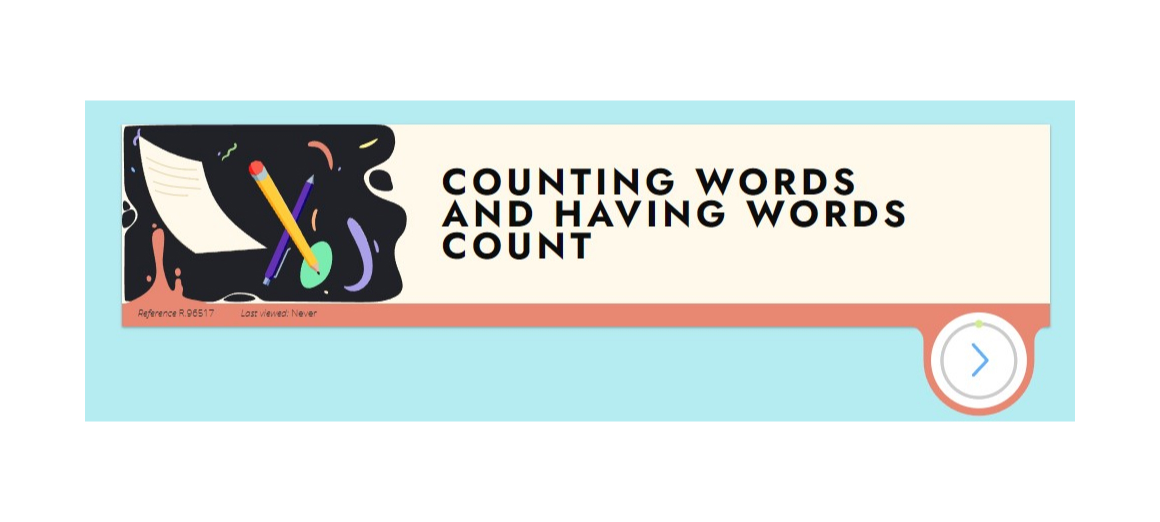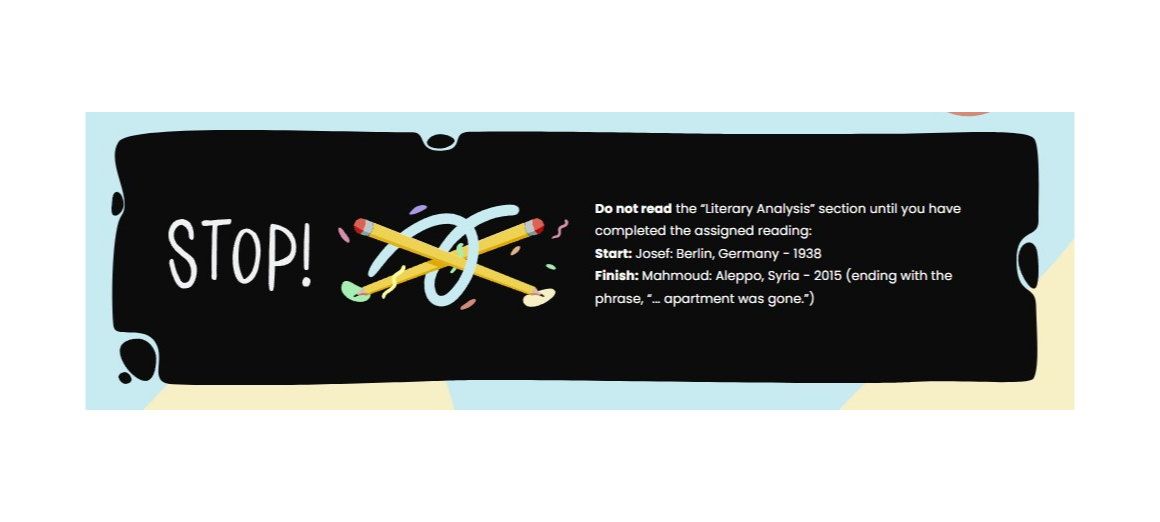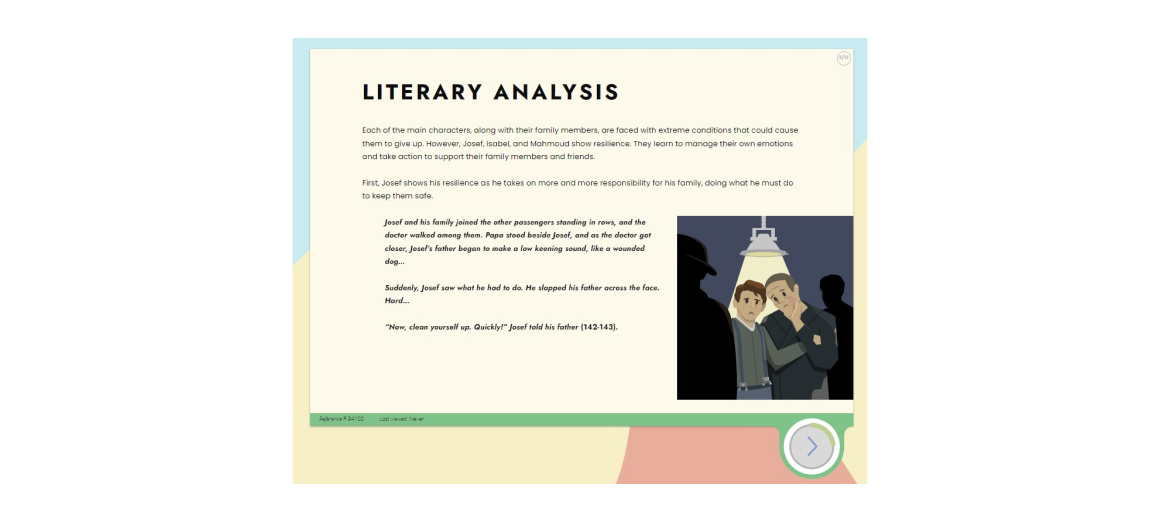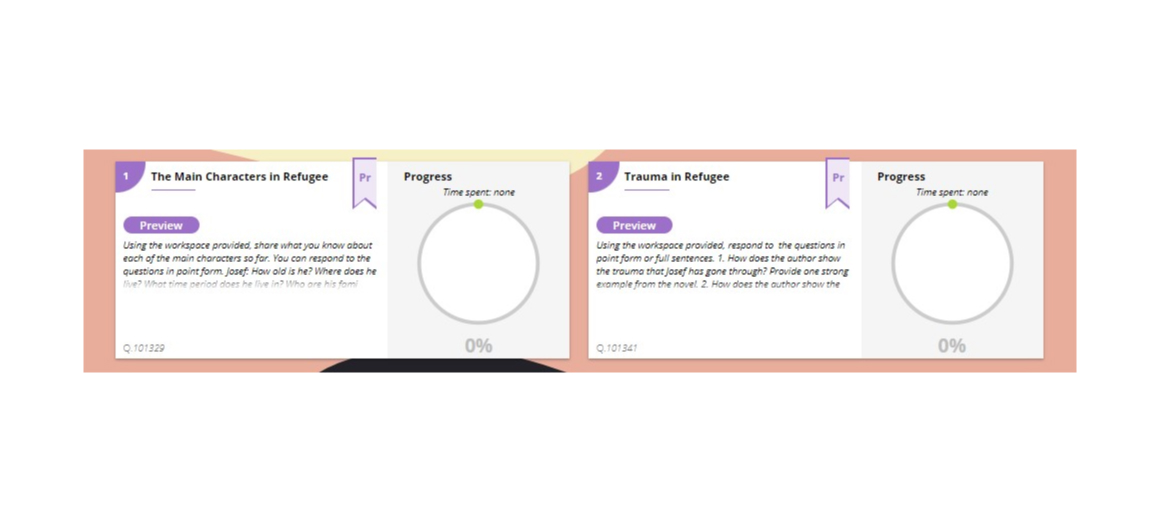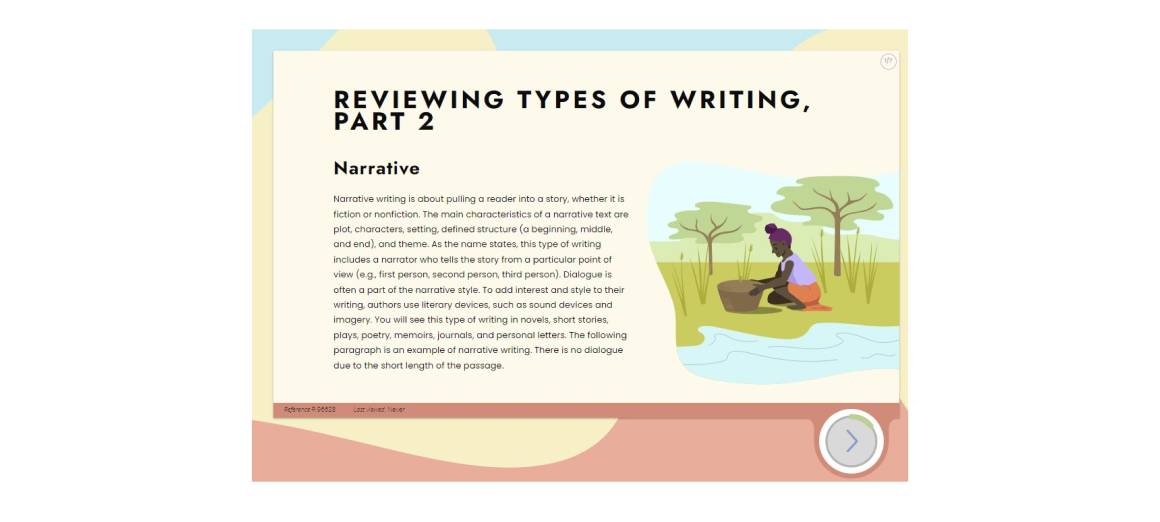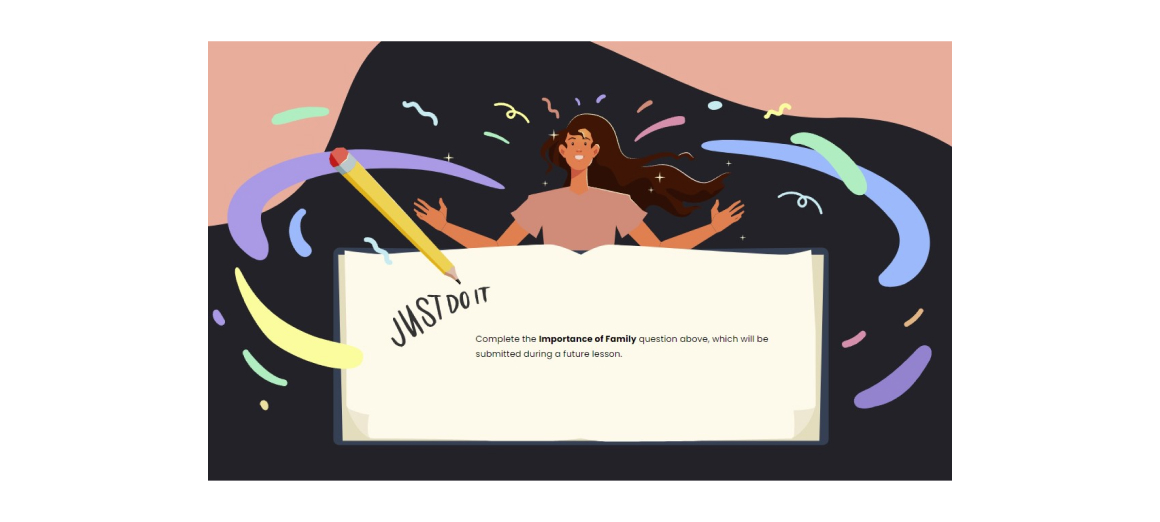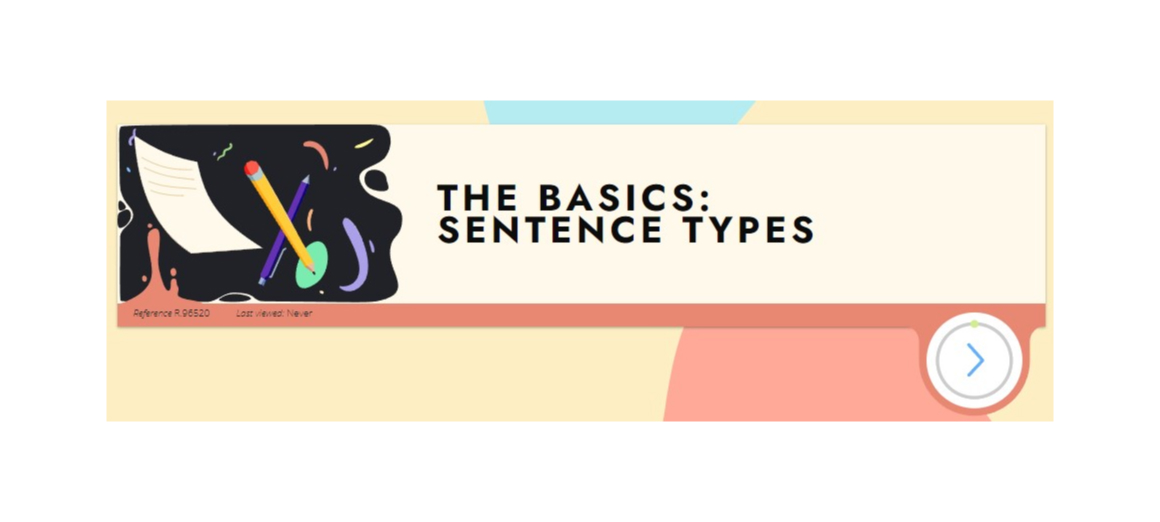English Language Arts 9
How can engaging with global stories expand our appreciation for the entire human family? Human beings are wired to communicate through stories, and as stories from around the world get inside of us, they have the potential to increase our empathy for others and build our sense of community with those from other places in the world. This course, while it is focused on reading, writing, and communication, also examines some significant global issues that will hopefully stir up students’ desire to become better global citizens. The texts in English 9 were chosen to help students think outside of their own experiences and consider their neighbours, both near and far. The course also strives to shine a light on the hope that is within human beings, even in the most challenging situations. The overarching goal is that students will be able to see themselves as part of the larger global society they live in and that their capacity for empathy for others will grow.
Students will also learn about the multiple ways there are to tell stories. In today’s world, stories can be shared, not just orally or in print, but also through pictures, movies, newspapers, online articles, blogs, poetry, and documentaries. This course will explore other storytelling methods and give students the opportunity to practise telling their own stories in different ways. As the course wraps up, students will have a chance to use their storytelling skills to share what they have learned themselves, hopefully making the world a better place through their own storytelling.
The StudyForge Difference
English 9 has dozens of engaging animated videos that teach complex topics in a simple way. Guiding questions and reflection questions allow students to go deep into important literary and thematic topics. Students will also have opportunities to grow and refine their paragraph and essay writing skills, with step-by-step videos and instructions to guide students through the process. Grammar Games are included in the novel study and writing skills units to develop students’ key vocabulary and grammatical skills. Beautiful, original illustrations complement the course text, enhancing student enjoyment and comprehension.
Table of Contents
Week 1: Getting Started
Lesson 1.1: Introduction to English Language Arts 9
Lesson 1.2: Engaging with Global Stories
Lesson 1.3: A Personal Story
Week 2: The Power of Stories: Picture Books
Lesson 2.1: The Power of Stories
Lesson 2.2: Picture Books
Lesson 2.3: Picture Books From Around the World
Week 3: The Power of Stories: Fairy Tales
Lesson 3.1: A Cinderella Story
Lesson 3.2: Other Global Cinderella Stories
Lesson 3.3: Write Your Own Cinderella Story
Week 4: The Power of Stories: Poetry
Lesson 4.1: Appreciating Poetry
Lesson 4.2: Writing Poetry, Part 1
Lesson 4.3: Writing Poetry, Part 2
Week 5: Unit Assignment: Show Your Creativity
Lesson 5.1: Choose Your Project Focus
Lesson 5.2: Build Your Project
Lesson 5.3: Polish Your Project
Week 6: Writing With Purpose, Part 1
Lesson 6.1: The Power of Words
Lesson 6.2: Language Precision
Lesson 6.3: Rhetorical Devices and Literary Devices
Lesson 6.4: Writing Skills Practice
Week 7: Writing With Purpose, Part 2
Lesson 7.1: Writing Better Paragraphs
Lesson 7.2: Common Types of Writing
Lesson 7.3: Writing Skills Practice
Week 8: Writing With Purpose, Part 3
Lesson 8.1: Writer’s Voice
Lesson 8.2: Creating Flow and Unity
Lesson 8.3: Writing Skills Practice
Week 9: Writing Paragraphs
Lesson 9.1: Planning Your Paragraphs
Lesson 9.2: Writing Your Paragraphs
Lesson 9.3: Polishing Your Paragraphs
Week 10: Refugee, Parts 1 and 2
Lesson 10.1: Refugee, Introduction
Lesson 10.2: Refugee, Part 1
Lesson 10.3: Refugee, Part 2
Week 11: Refugee, Parts 3 and 4
Lesson 11.1: Refugee, Part 3
Lesson 11.2: Refugee, Part 4
Lesson 11.3: Reading Skills
Week 12: Refugee, Parts 5 and 6
Lesson 12.1: Refugee, Part 5
Lesson 12.2: Refugee, Part 6
Lesson 12.3: Reading Skills
Week 13: Refugee, Parts 7 and 8
Lesson 13.1: Refugee, Part 7
Lesson 13.2: Refugee, Part 8
Lesson 13.3: Reflecting on the Novel
Week 14: Planning My Essay
Lesson 14.1: Choosing a Topic
Lesson 14.2: Creating an Outline
Lesson 14.3: Topic Sentences
Week 15: Completing My Essay
Lesson 15.1: Writing a Rough Draft: Body Paragraphs
Lesson 15.2: Writing a Rough Draft: Introductory and Concluding Paragraphs
Lesson 15.3: Editing and Revising My Essay
Week 16: Nonfiction Journalism
Lesson 16.1: Factual News Articles
Lesson 16.2: Editorial News Articles
Lesson 16.3: Finding Reliable News Sources
Week 17: Photojournalism
Lesson 17.1: The Power of Photos
Lesson 17.2: Stepping Closer
Lesson 17.3: Amazon Photo Forum
Week 18: Documentaries
Lesson 18.1: Documentaries
Lesson 18.2: Documentaries About the Amazon
Week 19: Amazon Blog, Part 1
Lesson 19.1: Blogs
Lesson 19.2: Topic Selection and Research
Lesson 19.3: Blog Outline and Rough Draft
Week 20: Amazon Blog, Part 2
Lesson 20.1: Revising and Editing
Lesson 20.2: Levelling Up Your Blog
Week 21: A Midsummer Night’s Dream, Intro and Act 1
Lesson 21.1: Introduction to Shakespeare
Lesson 21.2: Introduction to A Midsummer Night’s Dream
Lesson 21.3: A Midsummer Night’s Dream, Act 1
Week 22: A Midsummer Night’s Dream, Acts 2 and 3
Lesson 22.1: A Midsummer Night’s Dream, Act 2
Lesson 22.2: A Midsummer Night’s Dream, Act 3
Lesson 22.3: A Midsummer Night’s Forum
Week 23: A Midsummer Night’s Dream, Acts 4 and 5
Lesson 23.1: A Midsummer Night’s Dream, Act 4
Lesson 23.2: A Midsummer Night’s Dream, Act 5
Lesson 23.3: A Midsummer Night’s Dream Response
Week 24: Viewing A Midsummer Night’s Dream
Lesson 24.1: Viewing A Midsummer Night’s Dream
Lesson 24.2: A Midsummer Night’s Dream Viewing Response
Week 25: A Midsummer Night’s Dream Performance
Lesson 25.1: A Midsummer Night’s Dream Performance
Week 26: Global Journey Project, Part 1
Lesson 26.1 – Global Journey Project, Introduction
Lesson 26.2 – Starting Your Research
Week 27: Global Journey Project, Part 2
Lesson 27.1 – Finding Personal Stories
Lesson 27.2 – Finding Images and Video Footage
Lesson 27.3 – Outlining or Storyboarding Your Project
Week 28: Global Journey Project, Part 3
Lesson 28.1 – Rough Draft Writing
Lesson 28.2 – Revision and Editing
Week 29: Global Journey Project, Part 4
Lesson 29.1 – Finalizing Your Project
Lesson 29.2 – Sharing Your Project
Week 30: Final Reflection
Lesson 30.1 – Final Reflection
Final Exam
Experience a lesson as your students would
Course Features
- Students get step-by-step guidance on complex writing tasks, like writing essays
- Formative feedback built directly into the course structure
- Highly engaging and humorous instructional videos
- Accessible for students with diverse learning needs
- Games and quizzes to review vocabulary and other objective content
- Beautiful visual design enhances the course text and pedagogy
